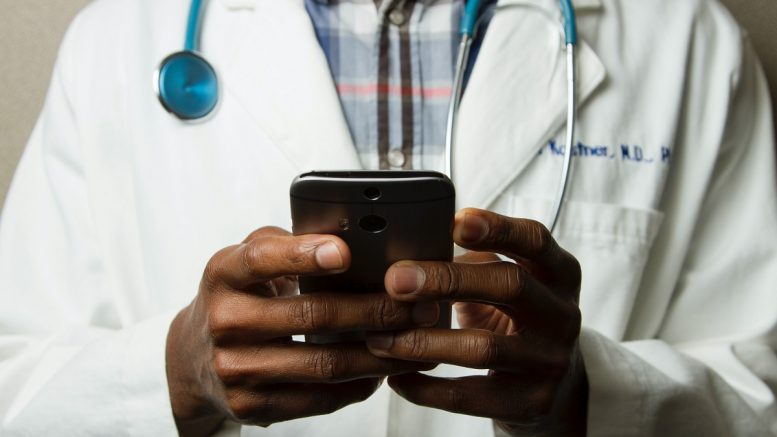In January 2019 the NHS announced their long-term plan to the public. This is a 10-year blueprint of highly considered ambitious, yet realistic goals, objectives and priorities developed by frontline staff, patient groups and national experts. In these plans, the NHS stresses the importance of using digital tools within conventional healthcare services to increase efficiency and improve patient care.
As the founder of digital healthcare app, my mhealth and former COPD lead at Southampton University, there is no doubt that I am a huge advocate and supporter of the tech focused goals set out by the NHS and have seen the impact digital care platforms have on healthcare delivery and patients. Digital transformation within the healthcare industry is something that I have been passionate about for years, so to see this being prioritised by the NHS is not only encouraging, it is truly inspiring.
As we are approaching a post-lockdown way of living and working in the UK, with an uptake on vaccination roll-out and restrictions set to lift in the coming months, it is important for the NHS to have the digital infrastructure in place to embrace digital-first patient care. In its plan, the organisation has set out five key areas within which to improve: empowering people, supporting health and care professionals, supporting clinical care, improving population health and improving efficiency and safety.
To achieve the overarching aim of improved care, the NHS must ensure it commits to enhancing its services through technology. The NHS can then better support its healthcare professionals to provide optimum care while prioritising their workload in an efficient way. In its plan the NHS discusses its aim to “transform” patient experience, and in utilising technology that is user-friendly and accessible, patients can benefit from remote healthcare without the concerns of long commutes to GP appointments or hospitals.
The NHS has made significant progress in its digital collaboration. Prior to the launch of NHSX in April 2019, moves towards digital were gradual and did not necessarily achieve the desired impact. However, with a look to the future, the NHS has confirmed its public commitment to better integrate technology into its practices to benefit healthcare professionals. In doing so it is ensuring better support for patients with long-term conditions, cancer and more.
In enabling digital infrastructure to support patients and HCPs, the NHS can achieve its intention to “Empower People” to manage their healthcare from home. Technology can be put into place to support those with long-term conditions, who are used to arduous journeys to attend face-to-face appointments. This technology will enable patients to check-in with their HCP from home, as well as allowing them to take advantage of digital developments such as health-tracking apps to update statistics on conditions that require daily monitoring and accessing their care plans electronically. By committing to making care plans and other health monitoring services available through technology, the NHS can make real progress in its aim to empower both patients and HCPS.
Over the last 12 months, the world has had to move to a virtual way of working and networking. This is also the case for the NHS, which is committing to virtual consultations through digital transformation. While continuing its commitment to supporting clinical care, the NHS’s plans to revolutionise how patients interact with HCPs is an important step in their digital journey. As virtual appointments give patients the continued contact they are looking for, in turn, these have the potential to alleviate pressures on HCPs. As neither party needs to be present, HCPs can prioritise in-person appointments that cannot be held via video.
Another facet to virtual interactions with patients is the workload balance it offers HCPs. In implementing cloud-based operating systems that can be accessed from anywhere, HCPs are provided with the opportunity to work remotely without the requirement of bespoke infrastructure.
The implementation of technology within the NHS will result in better, more streamlined care for HCPs and patients. In its decision to embrace technology, and commit to patient-first digital care, the NHS can empower its staff to better manage their workloads utilising efficiency-optimising solutions.
As we move beyond a Covid-19 focussed healthcare service and continue a path of digital transformation, it is important that HCPs and patients are equipped with the tools necessary to make this transition as seamless as possible. As laid out in their long-term plan, it is heartening to see these promises being made.
Article by Dr Simon Bourne, founder and CEO of my mhealth and former COPD lead at Southampton University.





